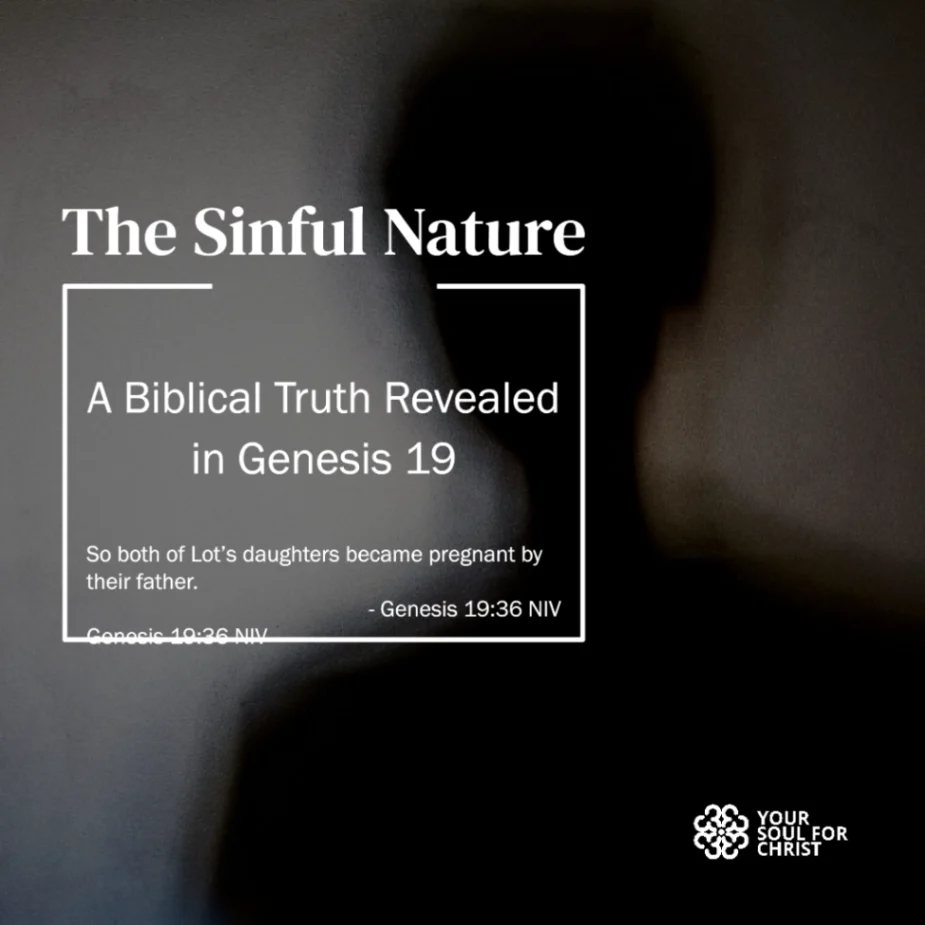So both of Lot’s daughters became pregnant by their father.
Genesis 19:36 NIV
The story of Lot and his daughters is a sobering account of how sinful nature can lead to devastating actions when left unchecked. Isolated in the mountains, Lot’s daughters devised an immoral plan to preserve their family lineage. This tragic event reveals profound truths about humanity’s inherent sinful nature and the need for divine transformation.
Lot’s decision to settle in the mountains after fleeing Sodom played a significant role in this tragic outcome. Rather than returning to Abraham’s camp, where his daughters could have found suitable husbands, Lot chose isolation. Even after seeking refuge in Zoar, he left the city and retreated to the mountains. He failed to consider his daughters’ future or the long-term consequences of his choices.
This lack of foresight created a setting where his daughters’ misguided reasoning and inherent sinful nature took centre stage. Lot had likely tried to protect their purity. However, their actions reveal that sin is not merely external but resides deeply within human nature.
The sinful actions of Lot’s daughters underscore a profound biblical truth: sin is inherent in every human being. As David acknowledged in Psalm 51:5, “Surely I was sinful at birth, sinful from the time my mother conceived me”. This verse emphasises that sinfulness is not taught; it is innate. Humans are born with a sinful nature, and given the right circumstances, this nature will inevitably manifest itself.
Rules, isolation, or external restrictions may temporarily delay sinful behaviour, but they cannot eliminate the root of the problem. Lot’s attempts to shield his daughters by preserving their virginity were noble. However, such efforts failed to address the deeper issue—the sinful nature that dwelled within them.
Moreover, Lot’s own role in this tragedy cannot be overlooked. By allowing himself to become so intoxicated that he was unaware of his daughters’ actions, he demonstrated poor judgment and failed as a spiritual leader in his household. This incident raises critical questions about the atmosphere he cultivated and his responsibility as a father.
The story of Lot and his daughters teaches several key lessons about sin and human nature:
- Sin is inherent, not learned: It is present in every human being from birth and does not require external teaching to manifest.
- Rules cannot remove sin: Regulations or isolation may delay sinful acts. However, they do not address the deeper problem of the sinful nature.
- Deliverance requires transformation: True deliverance from sin comes only through a complete renewal of the sinful nature, which is possible through God’s transformative power.
- Victory over sin: A truly righteous life is not defined by merely avoiding sin but by overcoming the very nature of sin.
- True righteousness: God desires not just outward goodness but an inward renewal of the heart and mind, leading to a life that resists sin even in the face of temptation.
In conclusion, this story is a stark reminder of the inherent sinfulness of humanity and the inadequacy of external measures to address it. This narrative challenges us to seek true transformation—a renewal of the heart and nature through God’s power. Victory over sin comes not from human effort alone but from allowing God to change us from within.
As we reflect on this story, let us examine our own lives. Are we relying on rules and appearances to suppress sin, or are we pursuing the deeper work of transformation through God’s grace? True righteousness begins in the heart and manifests in a life that resists sin, no matter the circumstances. Let this be our prayer and pursuit: a heart renewed by God, free from the power of sin.

